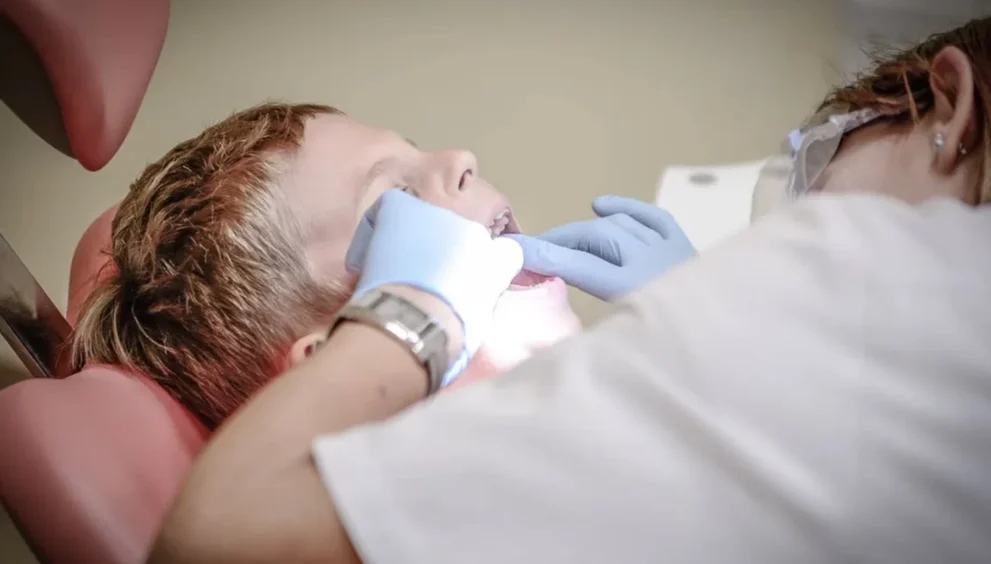Top 5 Reasons Not to Delay Getting a Root Canal
Depending on the individual, different dental problems can range from moderate to severe. While specific dental issues can be treated with medications, others can only be treated through dental procedures, including surgeries to address complex problems.
The remedy does not lie in avoiding or trying to run away from dental conditions. Dental issues like root canals must be treated immediately; otherwise, more severe dental problems may result. A root canal treatment is recommended to prevent the development of such a dental problem.
However, certain misconceptions or falsehoods intimidate people into forgoing surgery because they think it will be painful. However, the discomfort brought on by your damaged, decayed teeth may be more painful than the actual treatment. However, the notion being disseminated is false because a local anesthetic is applied to numb the area before the surgery, making dental root canal treatment a painless procedure.
Therefore, even though getting a root canal isn’t everyone’s favorite thing, having one is crucial as soon as you realize you need one. Dentists perform this as a surgical operation to save severely sick or damaged teeth. Instead of being afraid, recognize that skipping this procedure could jeopardize your overall health and other teeth. Therefore, a tooth root canal treatment is necessary.
So, keep reading as we examine the top 5 reasons not to put off undergoing a root canal.
Reasons to not Put off Getting a Root Canal
Here are a few explanations for why someone should undergo root canal therapy as immediately as possible:
A root canal can aid with pain relief.
When you have a damaged or decayed tooth, the pain might be excruciating sometimes, but it can also subside and return. As was previously said, an infected tooth causes tremendous pain. A person may first feel discomfort when chomping down on something hard. But gradually, that develops into genuine anguish that never goes away.
The pain swiftly disappears once a dentist or endodontist eliminates the diseased particles. Long-term benefits increase the sooner a person visits the dentist and has a root canal operation. A root canal procedure, on the other hand, doesn’t add to pain; rather, it eliminates it. Although it could take longer, it is similar to filling a cavity.
So keep in mind that the earlier you receive treatment for tooth pain, a standard indicator of root canal issues, the quicker you will experience pain relief.
A root canal could help save a tooth.
Long-term carelessness of a root canal issue puts the infected tooth at considerable risk of extraction. Once tooth loss occurs, it can lead to various other problems, including gum disease, bite issues, and a higher likelihood of dental decay on remaining natural teeth. As oral health issues worsen, further tooth loss may also occur.
All dentists place a strong emphasis on preserving their patients’ natural teeth. A root canal may not be possible if someone stays the course to get one. If the tooth were extracted, the person would either experience a large gap or require an implant. The safer option is to keep the existing teeth, which makes it easier for patients to bite.
Root canal treatment can prevent dental infection.
Most of the time, a tooth that requires a root canal is already infected when a person realizes they need one. It has essentially begun to die. Even though the tooth’s outside is made of hard enamel, its interior is made of soft pulp, which is genuinely living tissue.
Excruciating pain results if the gets infected as a result of a chipped, broken, or decaying tooth. Infection is stopped and kept from expanding to adjoining teeth via a root canal. The inner pulp of the tooth is formed of soft, living tissue, in contrast to the intricate outer layers.
Sometimes, this tissue gets infected and degenerates due to extensive decay, surface fissures in the tooth, etc. When that occurs, immediate medical attention is required to alleviate the discomfort, manage the infection, and prevent it from spreading further.
Since decayed teeth do not self-heal, a root canal is necessary.
One can make sure things disappear by ignoring them. The latter category does not include root canal issues because they won’t get healed by themselves. Sometimes the discomfort will go away if you stick around long enough. That’s certainly not a positive indication, though, as it indicates that the tooth’s nerves have withered and the issue won’t go away all on its own.
The infection is still present, spreading to the nearby teeth. A chipped, broken, or decaying tooth cannot self-heal like a damaged ankle. Many people attempt to ignore the issue, but doing so worsens things. If nothing is done, the discomfort and infections will persist.
When left untreated, damaged, decaying teeth can worsen over time.
If unattended, germs from a highly infectious tooth pulp can enter the gum and jaw tissue through the tooth’s roots. A terrible, pus-filled abscess may develop, necessitating immediate medical attention. In complicated conditions, it can also lead to a rise in systemic inflammation throughout the body, raising your chances for more severe illnesses like stroke and cardiovascular disease.
One of the primary worries is that if you don’t go to the dentist, the issue will become worse. A person’s bloodstream could potentially become infected by the tooth infection. If it occurs, the person may get a severe illness. Along with the jaw, the gums are also impacted. Small pus-filled abscesses eventually develop. So, a root canal is required in that case.
Final Thoughts
Consult your dentist if a tooth starts to hurt or discomfort persists. A root canal dental clinic can assess whether you require a root canal by undergoing an assessment and collecting X-rays. In that case, your dentist will walk you through every step of the process. Keep in mind that this procedure is quite effective and relatively painless.
If you’re looking for the best root canal treatment in India, consider visiting Signature Smiles. However, the cost of a root canal in India starts at INR 2,000, varies from clinic to clinic, and depends on the type of surgery.






